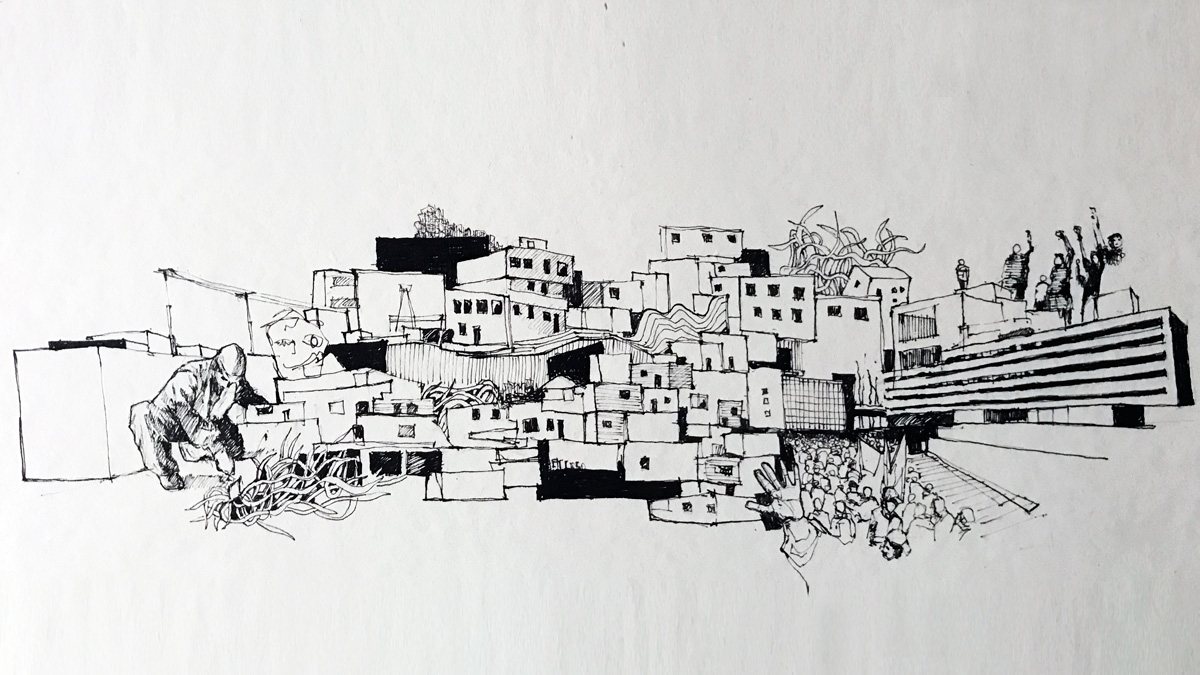
In this special edition of Left ideas We present this brochure, which seeks to resume key definitions about what revolutionary Marxists understand when we talk about socialism or communism; Explore what challenges are presented in the current stage of capitalism, and respond some of the false criticism – or directly prejudices – that the defenders of capitalism use to insist that there are no alternatives to this system or that it would not be worth fighting for a society without exploitation and oppression.
INTRODUCTION
After decades of capitalist triumphalism, few could deny that we are in front of one of the historical crises of the system. Among their defenders, some seek to hold the neoliberal “excesses” responsible for this situation, while others insist that the problem was wanting to limit the markets, as if it had not been precisely those recipes that brought us here. In both cases, what is not in question is that the problem was always capitalism itself.
The truth is that the cause of social inequalities deepen, the pillar in which different forms of oppression are sustained and the person responsible on the way to the ecological catastrophe is a social system based on the exploitation of work. The capitalist logic of organizing the entire society to guarantee their profits has proven to be destructive: without solving our most basic social needs, which has undoubtedly increased are the hardships of the workers, the workers and the people.
Wrapped again in wars and crises – economic, political and social -, this system seems involuntarily to be updating two of the elements that the Russian revolutionary Lenin has defined more than a century ago as a result of the imperialist era. The capitalists wanted to sell us that stage as overcome and replaced by a “globalization” that sounded less interested and more promising; However, today it is discussed in their own contradictions. But Lenin saw, on that horizon, more than new crises and wars; He glimpsed a perspective that accompanied these phenomena because it was the only alternative to end up with them: the socialist revolution.
Although the defenders of capitalism crush that there is no possible alternative – and they encourage the right to the right every time the relations of strength -, at times they seem to perceive that ghost in the different revolts and uprisings that crossed the first decades of the 21st century, in each struggle and claim with which the masses resist continuing to continue being cannon meat of the interests of the capitalists. Or in each questioning that until now were more or less established common senses (they are already young people who see the need to stand unions to defend themselves from the employers, or who decide to put the body and military just causes). And many of these social movements recognize since their specific demands have no effective solution if it is not attacking the bases of the capitalist system. Anti-capitalism, in different variants and levels of radicality, has returned to political-ideological debates.
Some guardians of the provisions sometimes even exaggerate: they vocife against the danger of socialism or communism in the face of minimum measures – as can be the increase in a tax to the rich or the recognition of a basic right torn with the struggle. They exaggerate because these demands have not yet transformed into mass movements organizing against the capitalists. But perhaps they are not wrong in their class instinct: there is no wall that separates these new political phenomena from the awareness that it is necessary to end this root system. The whole history of capitalism demonstrates that these changes, pushed by capitalist barbarism and the development of class struggle, are faster and faster than evolutionary.
They also insist on the discredit of these ideas after experience, in the twentieth century, with the so -called “real socialism”, which arose from betrayal to the objectives of the Russian revolution and the bureaucratization of the USSR under the Stalinism boot. We will return to this, but let’s point out that “with us not.” The revolutionary tradition of which we are part, Trotskyism, is the one that faced that drift, in addition to denouncing what would be its consequences – which, unfortunately, were confirmed -: the restoration of capitalism in the poorly called “socialist” countries, as well as the loss of the horizon of the revolution not only as necessary but also possible, for a prolonged period.
Today, in capitalist China, the ruling party continues to be called “communist” although they are part of it the richest bourgeois in the country, and holds an authoritarian regime to discipline its enormous working class for the benefit of large national and foreign companies. This has nothing to do with communism. But neither does the so -called “21st century socialism” that raised Chavismo in Venezuela. Despite the friction he had with American imperialism, he maintained capitalist property relations and, in recent years, with Maduro, he is carrying out an openly neoliberal policy. In Latin America was the 1959 Cuban revolution the only one that managed to expropriate the bourgeoisie and expel imperialism and, in that sense, acquired a socialist character. However, the single party regime, with the Cuban PC in the lead, and the development of a privileged bureaucratic caste, prevented the development of the socialist revolution as such. In recent decades, that leading caste has redoubled the course towards the complete restoration of capitalism while American imperialism maintains the blockade of the island as a rope around the Cuban people.
We need to get the lessons of struggles and losses against the current capitalist crisis horizon. It is from the opposite point of view that the revolutionaries define that there is no future for us, for the new generations, and not even for the planet, if the working class does not fight for a socialism from below, where the main resources of the economy, democratically planned, are placed according to the needs of the great majorities, to end all forms of exploitation and oppression.
But what are we talking about when we say socialism? Taking of Engels – the friend and collaborator of Marx in the political and theoretical struggles that forged Marxism – the idea of deploying the principles for which we fight through a series of questions and answers – which, although they were unfinished, were the basis of much of the written with Marx in the Communist Manifesto-, we want in this brochure to address the current challenges and central definitions of what we understand by socialism, so attacked, misrepresented and dismissed in recent decades. Because the debate against the dominant ideas, and the discussion of our ideas with those who seek an alternative to this system constitute, for the revolutionaries, one of the battle fronts in the organization of social and political force capable of implementing these objectives.
1 Why fight for socialism today?
2 Who produces social wealth?
3 Why does capitalism increase social inequality and generate recurring crises?
4 Did the changes produced in capitalism end with the social and political force of the working class?
5 Do Socialists only mind to free the working class? What about the other forms of oppression that exist?
6 Can the State control capitalism?
7 Are we socialists against democracy?
8 Wasn’t it easier to advance in increasingly broad reforms than betting on a socialist revolution?
9 Is socialism not intended for “rich countries” or “advanced”?
10 The socialist project does not always end in dictatorship?
11 If we all had our satisfied needs, wouldn’t we end up further depleting the planet?
12 Are the socialists pacifists or, vice versa, we only trust a violent revolution?
13 For the socialists the revolutions are made by the revolutionary parties?
14 Will we all be the same?
To keep reading
The authors thank the classmates who collaborated with valuable readings, comments and suggestions to these pages, which otherwise nourish and are part of the elaboration and collective discussion of our years of militancy in the PTS.
Source: www.laizquierdadiario.com

